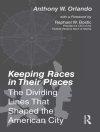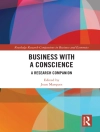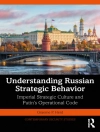Although mammals comprise a relatively small proportion of total biodiversity they are disproportionately represented in courses in biology and zoology and they are the dominant taxon in zoos around the world. Mammalogy is well-established as a discrete element of biological courses in some parts of the world, notably in North America.
This book is intended as a study and revision guide for students following programmes of study in which mammalogy is an important component. It comprises 600 multiple-choice questions (and answers) set at three levels – foundation, intermediate and advanced – grouped into 10 major topic areas:
1. The history and principles of mammalogy
2. Origins, evolution and taxonomy
3. Anatomy
4. Physiology
5. Behaviour
6 Ecology and genetics
7. Zoogeography
8. Conservation and management
9. Parasites and diseases
10. Domestication and human use of animals
The book is designed to be used at any time in any place. It allows the reader to study the meaning of terms used in mammalogy, the history of mammalogy, the taxonomy, evolution and genetics of mammals, their zoogeography, their anatomy, physiology and adaptations to their environment, their behaviour, their conservation and management, their diseases, and their domestication and use by humans.
Some of the questions will require students to use their knowledge to interpret information provided in the form of graphs, data, maps or photographs
Yazar hakkında
Paul Rees was a senior lecturer in the School of Science, Engineering and Environment at the University of Salford, United Kingdom, for 22 years until his retirement in 2020. He holds a BSc in Environmental Biology from the University of Liverpool and a Ph D in animal ecology and behaviour from the University of Bradford. Paul previously lectured at three Further Education Colleges and a Higher Education College in the United Kingdom, and trained biology teachers at Sokoto College of Education in Nigeria. He has taught from GCE ‘O’/GCSE level to MSc level and has been an external examiner for a range of taught programmes, from Higher National Diploma to MSc level, at six British universities. Paul has published papers on mammal behaviour and ecology, wildlife law, and the role of zoos in conservation, along with eight textbooks concerned with ecology, zoo biology, wildlife law and elephants. Paul is the author of three other titles in CABI’s Key Questions series: Ecology, Applied Ecology and Conservation, and Biodiversity












